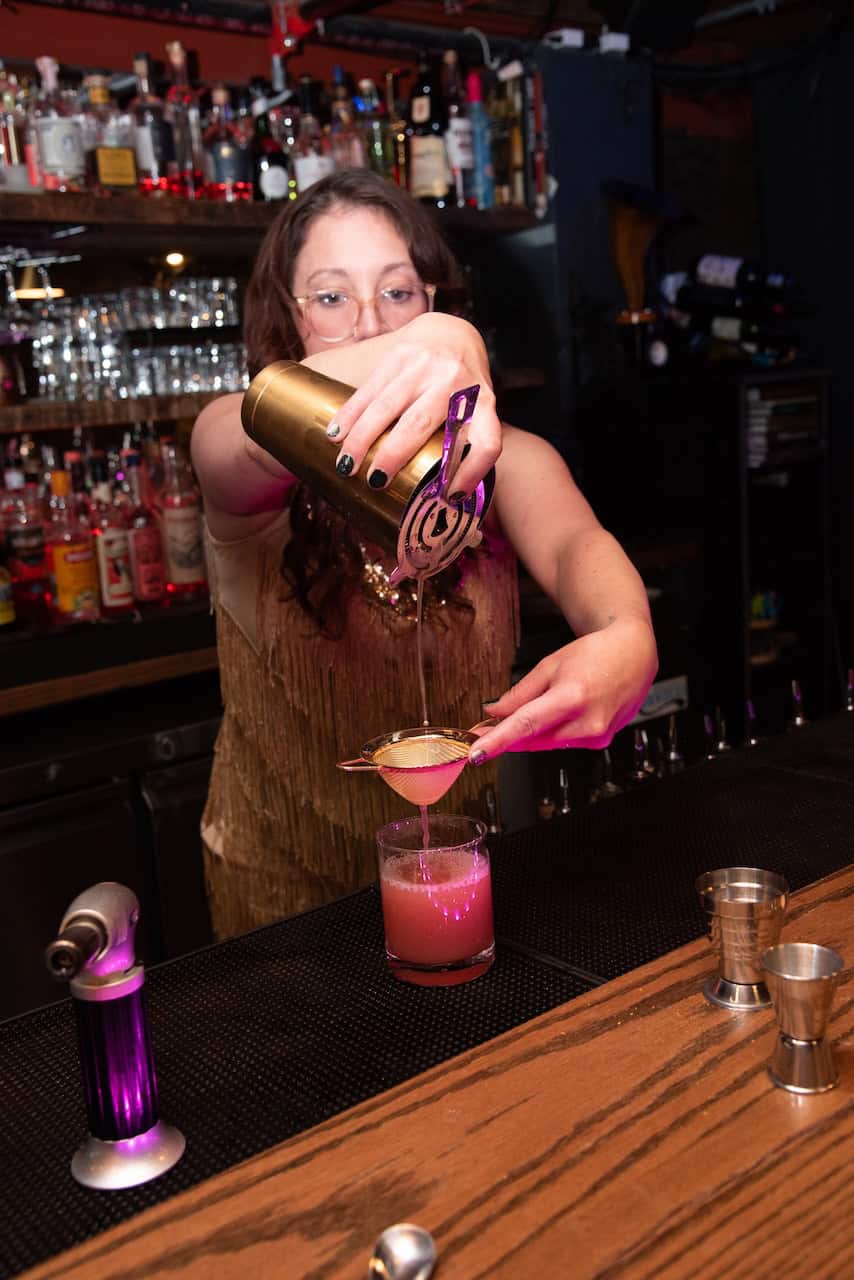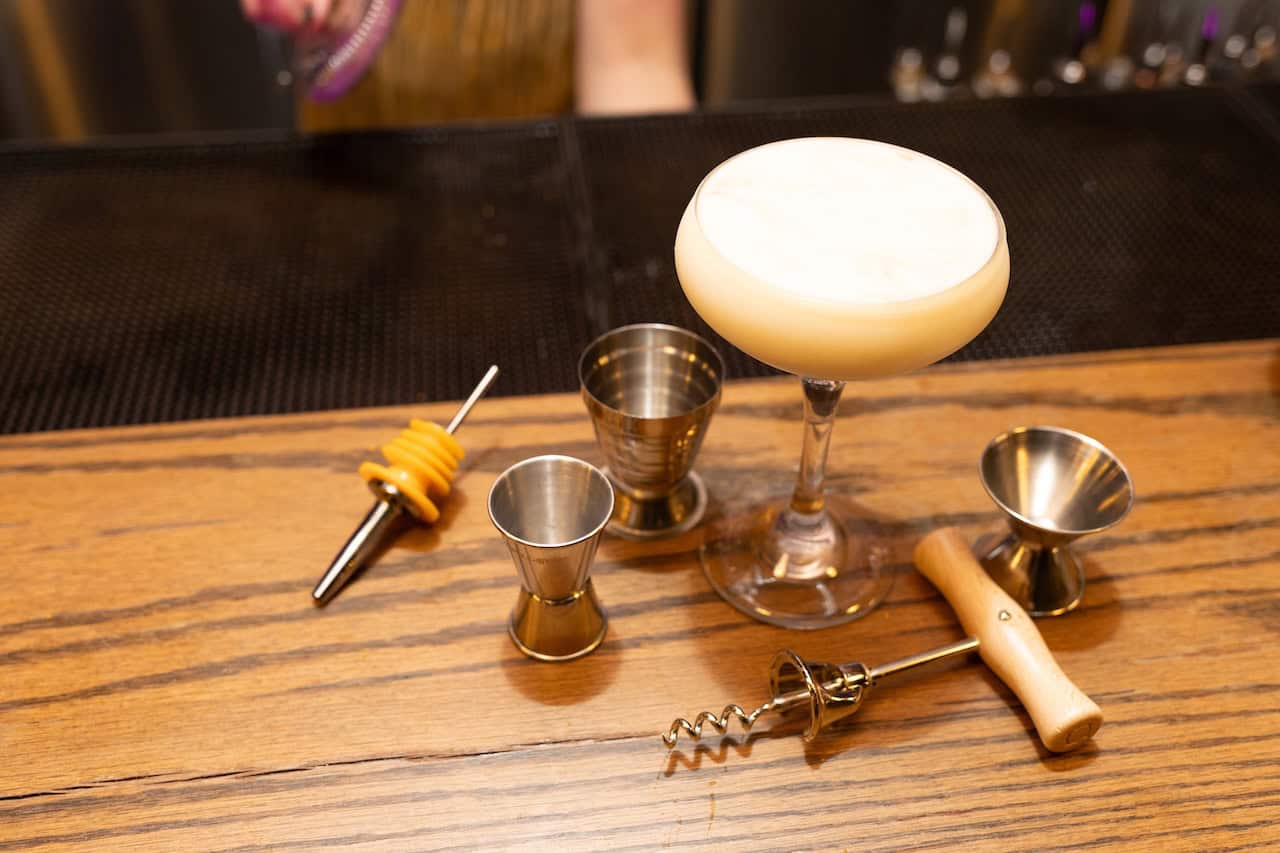The craft cocktail movement has elevated bartending from a service role to a culinary art form. Yet, even the most creative mixologists depend on fundamental tools that form the backbone of professional drink preparation. After 90 years in the industry, Spill-Stop (an American manufacturer of premium hand tools for the bartender located in St. Charles, Ill.) has identified five professional-grade equipment tools every serious bartender needs to achieve greater efficiency and success.
1. Pourers: Achieving Speed Without Sacrifice
Quality pourers must maintain a consistent flow and rhythm essential to professional bartending. The choice between measured and free-flow pourers depends on the establishment’s priorities.
Free-flow pourers (Preferred by most mixologists):
- Allow natural pouring rhythm and technique
- Enable skilled bartenders to vary pour rates
- Support flair and presentation techniques
- Allow for customization and art in drink mixology.
Measured pourers (Preferred by most owners):
- Ensure consistent portions across all staff
- Reduce overpour and inventory shrinkage
- Simplify training for new bartenders
- Support cost control in high-volume operations.
Quality indicators to look for in premium free-flow pourers include chrome tapered metal construction, smooth internal surfaces and reliable air flow that prevents gurgling or inconsistent pours. Always remember that overpour is one of the main drivers of revenue loss in bars and restaurants.
2. Precision Jigger: The Foundation of Consistent Cocktails
Accurate measurement transforms good cocktails into great ones. While experienced bartenders can estimate pours, precision jiggers ensure consistency across shifts, staff, and high-pressure service periods. Four key things to look for:
- Clear measurement markings (1/2 oz, 3/4 oz, 1 oz, 1.5 oz)
- Balanced weight distribution for comfortable handling
- Durable construction that withstands repeated daily use
- Easy-to-clean interior surfaces.
Restaurant-grade jiggers feature heavier construction, more precise measurements and ergonomic designs that reduce hand fatigue during long shifts. The investment pays dividends in consistency and speed.
3. Boston Shaker: Power and Versatility Combined
The Boston shaker remains the workhorse of professional bars due to its speed, capacity, and versatility. Unlike cobbler shakers, Boston shakers rarely jam and can accommodate larger volumes for multiple drinks. Essential features include:
- Weighted tin for better balance and control
- Proper seal between tin and glass
- Size appropriate for single or multiple cocktails
- Quality construction that prevents denting.
Many bartenders prefer the tin-on-tin Boston shaker for its durability and consistent seal, though the traditional tin-and-glass combination offers visual appeal for craft presentations.
4. Fine-Mesh Strainer: Clarity and Texture Control
Double-straining through a fine-mesh strainer removes ice chips, fruit pulp and herb particles that can compromise cocktail appearance and mouthfeel. This step distinguishes craft cocktails from basic mixed drinks. Key specifications include:
- Fine mesh (typically 200+ mesh count)
- Comfortable handle for one-handed operation
- Appropriate size for the primary shaker
- Durable frame that maintains shape under use.
5. Bar Spoon: Precision Stirring and Layering
A proper bar spoon serves multiple functions: stirring, layering, muddling and measuring. The twisted handle design provides better grip and control during stirring motions. Professional features include:
- 12-in. length for tall mixing glasses
- Twisted handle for improved grip
- Balanced weight distribution
- Durable construction (typically stainless steel)
- Optional muddler or fork end for versatility.
Why Quality Matters: Performance Under Pressure
Craft bartending demands tools that consistently perform during busy periods. Inferior equipment fails during the dinner rush when every second counts and every drink must be perfect. Professional-grade tools offer:
- Reliability: Consistent performance shift after shift
- Ergonomics: Reduced hand fatigue during long service periods
- Precision: Accurate measurements and controlled pours
- Durability: Years of service without degradation
- Efficiency: Faster drink preparation without compromising quality.
Building a Professional Kit
Start with these five essentials, then expand based on the specific needs and cocktail program. Many bartenders prefer to invest in one high-quality piece at a time rather than purchasing complete sets of mediocre tools.
Budget considerations: While professional tools require higher upfront investment, their longevity and performance make them more cost-effective over time. A quality liquor bottle pourer, like Spill-Stop’s 285 chrome tapered series, that doesn’t overpour, can save your establishment thousands of dollars in potential lost revenue every year.
Made in USA advantage: Domestic manufacturing often provides better quality control, materials engineering, reliable supply chain and customer support. When a company’s livelihood is dependent on tools, reliability becomes paramount.
The craft cocktail movement has elevated customer expectations for creativity and consistency. These five essential tools provide the foundation for meeting those expectations, shift after shift, drink after drink.


